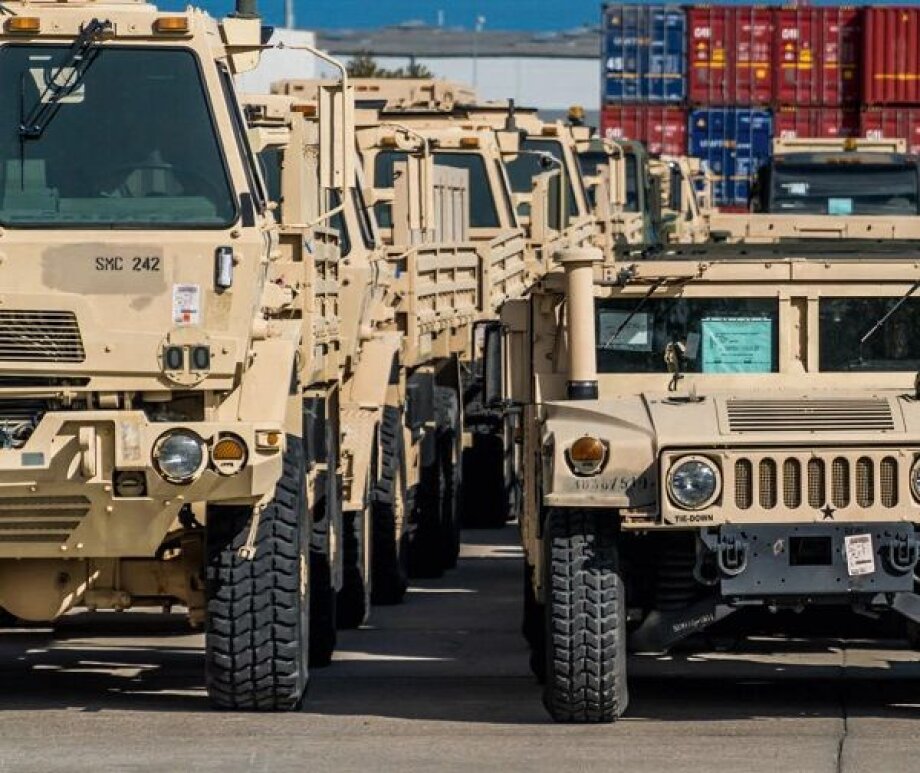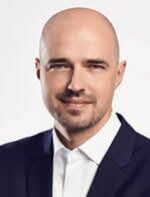GUIDING PRINCIPLES
At a time when Poland is in a state of political crisis, the principles of freedom, justice and democracy should be of paramount importance, believes Zbigniew Pisarski. INTERVIEW BY EWA BONIECKA

At a time when Poland is in a state of political crisis, the principles of freedom, justice and democracy should be of paramount importance, believes Zbigniew Pisarski. INTERVIEW BY EWA BONIECKA

WBJ: You are the chairman of the organization named after Casimir Pulaski — a hero of the American War of Independence who has earned the title the Polish “Knight of Freedom.” This creates a connection between the history of the 18th century with modern values which guide the think tank's work: the principles of freedom, justice, and democracy. When was the Casimir Pulaski Foundation (FKP) established?
Zbigniew Pisarski: FKP was established by me in 2004. I was aware of the fact that General Casimir Pulaski was not given prominence in communist Poland because he fought against Russia in 1818 for the independence of Poland. The situation was different in the US, where he has several monuments, including one erected just 2km from the White House.
At the time of establishing the think tank, I closely analyzed the situation of foundations in Anglo-Saxon countries, where they exert a large influence. I believe that there is a similar need in our country. The public should have the possibility to exert pressure on and inform decision-makers on various issues. The latter should not decide about all the affairs of Poland from the quiet of their own offices and later complain that they were not adequately informed. I believe that FKP should be the voice of the conscience of decision-makers.
Our organization comprises over 70 experts and specializes in foreign policy and international security issues, which are important for Poland. We do not focus on all elements of domestic policy. People who work with us — university professors, former diplomats, social activists, and social entrepreneurs — all have different political views on certain issues and it is our conscious choice to accept this. What is important is that they support the principles of the think tank: democracy, justice, and freedom of action in Poland.
As far as international activities are concerned, we focus on two geographical areas — the Transatlantic area and Russia, and the post-Soviet sphere. We are interested in supporting security, both in the traditional military sense and in the non-military dimension. We also want to support those political, economic, and social changes which can have consequences for Poland and its position in the European Union.
FKP enjoys the status of a partner organization of the Council of Europe (COE). Every year we organize a conference called the Warsaw Security Forum (WSF), which serves as a platform of dialogue on defense and international policy and relations between the EU, NATO, and Russia.
Also once a year we confer the “Knight of Freedom” award for outstanding achievements in promoting the values represented by General Pulaski: freedom, justice, and democracy. This year the award was given to Alexei Navalny, the Russian opposition activist who is being jailed in a Russian prison. And we also invited Sviatlana Tsikhanouskaya, leader of the Belarusian opposition and human rights activist, to appear at a press conference organized by the WSF.
I participated in this year’s WSF, which drew several hundred prominent personages from over 90 countries, including the US. Among them were prime ministers, MPs, diplomats, and experts who debated on international and security issues. Poland was represented by, among others, foreign and defense ministers, the mayor of Warsaw, experts from opposition parties, and deputies to the lower house (Sejm) of the Polish parliament. They sat at the same table during the discussions and exchanged opinions. How did you manage to invite such a wide range of experts and encourage them to take part in the discussions?
We want to be a place of dialogue for people on both sides of the political spectrum. I wanted these people to have a chance to talk to each other in the presence of high-level foreign politicians and to make sure that no politician treads on another politician's toes. I was happy to see that this international forum was attended by representatives of both the Polish government and the opposition, who focused on the substance of issues and discussed them in a much more polite and calm way than is usually the case in Sejm.
FKP is neutral in character. We are neither pro-government nor pro-opposition but simply pro-Poland. We want our guests to discuss various foreign policy positions without any disagreements and to sit next to each other at the table.
One of the main topics discussed was the relationship between the West and Russia, including defense issues and threats to world peace. Russia’s annexation of Crimea [from Ukraine] was judged to be illegal. During a panel dedicated to the countries lying between the Black Sea and the Baltic Sea, the Turkish foreign minister declared full support for Ukraine and Georgia. A frequently discussed topic was the new NATO strategy. It was stressed that the new NATO plan must take into consideration not only the consequences of Russia’s aggression on Ukraine but also the relations between Europe and the US.
The presence of US soldiers in Europe, including on Poland’s territory, was another important topic of discussion. In addition, NATO’s assistant secretary-general for public diplomacy raised such topics as China, cyberspace, and the climate.
The participants almost unanimously agreed that a breakthrough in relations with Russia could hardly be expected under President Putin's presidency. The head of the New Generation Warfare Centre added that one should not disregard Russia's nuclear potential, including in the area of tactical nuclear strikes.
The WSF does not deal with internal Polish affairs, including the issue of media freedom, because it is not designed to debate about the internal affairs of individual countries. These issues are dealt with by FKP in its daily activity, but not during the conference.
What about the finances? After all, the WSF must have been costly?
It was, but we received support from foreign donors. We do not receive any state funding at the moment for our daily activities, but we do receive some funds from international organizations, from the NATO HQ, the COE, and some US organizations. We are also supported by certain private firms active in the field of security and defense.
Personally, I do not receive any remuneration from FKP which I manage. I am a social entrepreneur and this is how I earn my living and that of my family. Our annual “Knight of Freedom” award is not a financial one. Its value lies in its prestige and its recognition of the laureate’s achievements in the area of freedom, justice, and democracy. The name of the award refers to the activity of Casimir Pulaski and its laureates’ including Polish and foreign activists, including Lech Wałęsa.
I would like to underline that the EU, Poland, and the world are changing and citizens themselves are becoming more and more active and more independent-thinking about national and foreign issues. The role of social organizations is growing. This is most visible in the West, where organizations also receive financial donations from citizens.
But everywhere such institutions are seen as being critical of governments and political parties as well as the state administration. Citizens are turning to organizations that are open to dialogue, fair, accountable, and capable of responding to their questions. Hence, the role of FKP is also growing because it is objective, independent, and factual in its research and analysis and presents a diversity of views.
In recognition of those merits, FKP received the “Think Tank” prize in the “Best EU International Affairs think tank” category in 2017, awarded by the British magazine “Prospect.” This also explains the apolitical nature of the WSF and the fact that it was attended by both members of the Polish government and the opposition party, the Civic Platform. And this kind of dialogue is what citizens want to see at a time when Poland is in a state of political crisis. The public does not want to see a paralyzing war between those in power and the opposition.
I would like to end our interview by asking what do you expect from the Polish society and FKP in the future?
We must reinforce our actions in society. We must also remain optimistic and united in achieving our goal of strengthening Poland’s position in the EU and the world. And I believe that we will succeed.

Zbigniew Pisarski is a social entrepreneur and investor. He is the founder and president of the Casimir Pulaski Foundation, a leading Polish think-tank specializing in international security, military wargaming, and simulations.